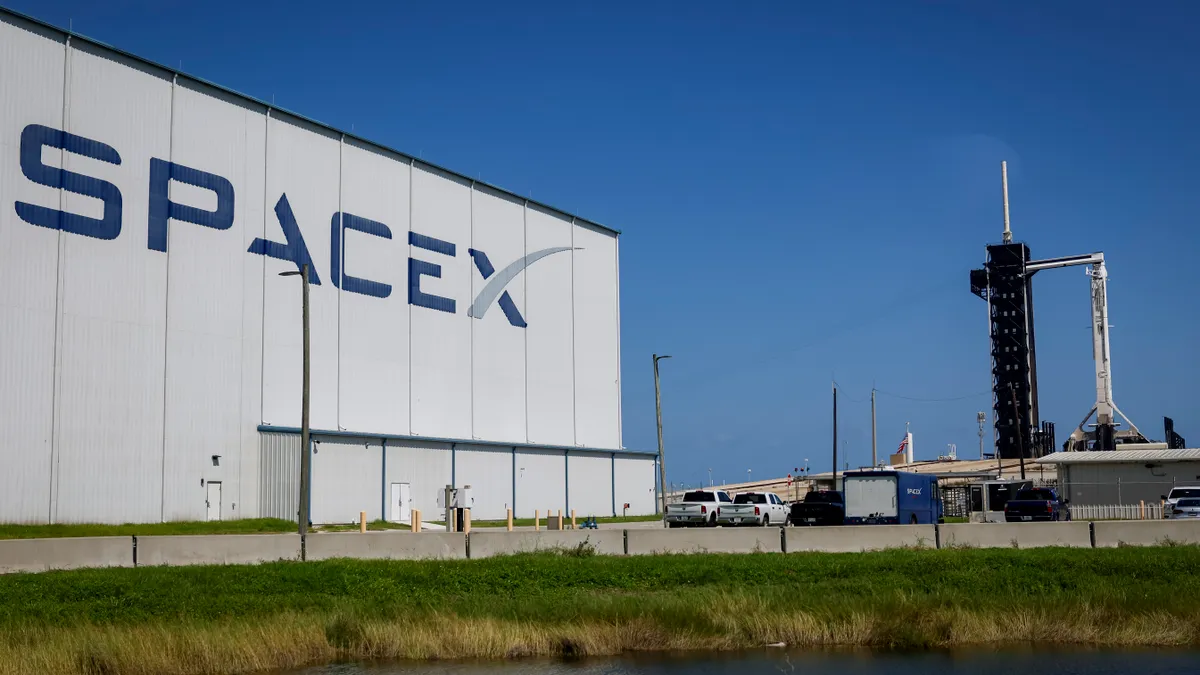Dive Brief:
- The National Labor Relations Board filed a complaint against SpaceX on Wednesday, alleging that the company violated federal labor laws when it fired an employee for participating in protected activities and required all employees to sign both an arbitration and dispute resolution agreement as well as a class action waiver.
- NLRB initially filed a charge against SpaceX in 2022. The charge claimed that SpaceX’s mandatory arbitration agreement illegally interfered or otherwise restrained employees’ Section 7 rights under the National Labor Relations Act, as did a separation agreement the Board alleged was “[overly] restrictive.” The separation agreement was offered to the fired employee in question, NLRB said.
- SpaceX must file an answer to the complaint on or before April 3, NLRB said. The Board also issued a Notice of Hearing for Oct. 29, to be conducted by an agency administrative law judge.
Dive Insight:
Federal regulators and an Elon Musk-led company: Name a more contentious duo. SpaceX is just one of the billionaire’s enterprises to draw employment law enforcement agencies’ attention.
Automaker Tesla, for example, has faced the NLRB, the U.S. Equal Employment Opportunity Commission and state regulators in court in recent years. Mere days ago, the company settled a race discrimination suit brought by a former employee who won two separate jury trials against Tesla.
It’s not SpaceX’s first meeting with the NLRB, either. In 2022, the company faced an unfair labor practice charge from employees who alleged that SpaceX engaged in unfair labor practices in response to the publication of an open letter that discussed workplace concerns. Other former SpaceX employees had previously shared experiences of sexual harassment, sexism and racism at the company.
NLRB scheduled an administrative hearing in response to the 2022 charge, and in response, SpaceX sued the agency in a Texas federal court earlier this year. It alleged that NLRB unconstitutionally subjected it to the hearing, depriving the company of its right to a jury trial.
The company’s line of argument in that case is similar to the one raised in a pending U.S. Supreme Court case, SEC v. Jarkesy, which involves similar questions about the constitutionality of agency proceedings overseen by administrative law judges.














